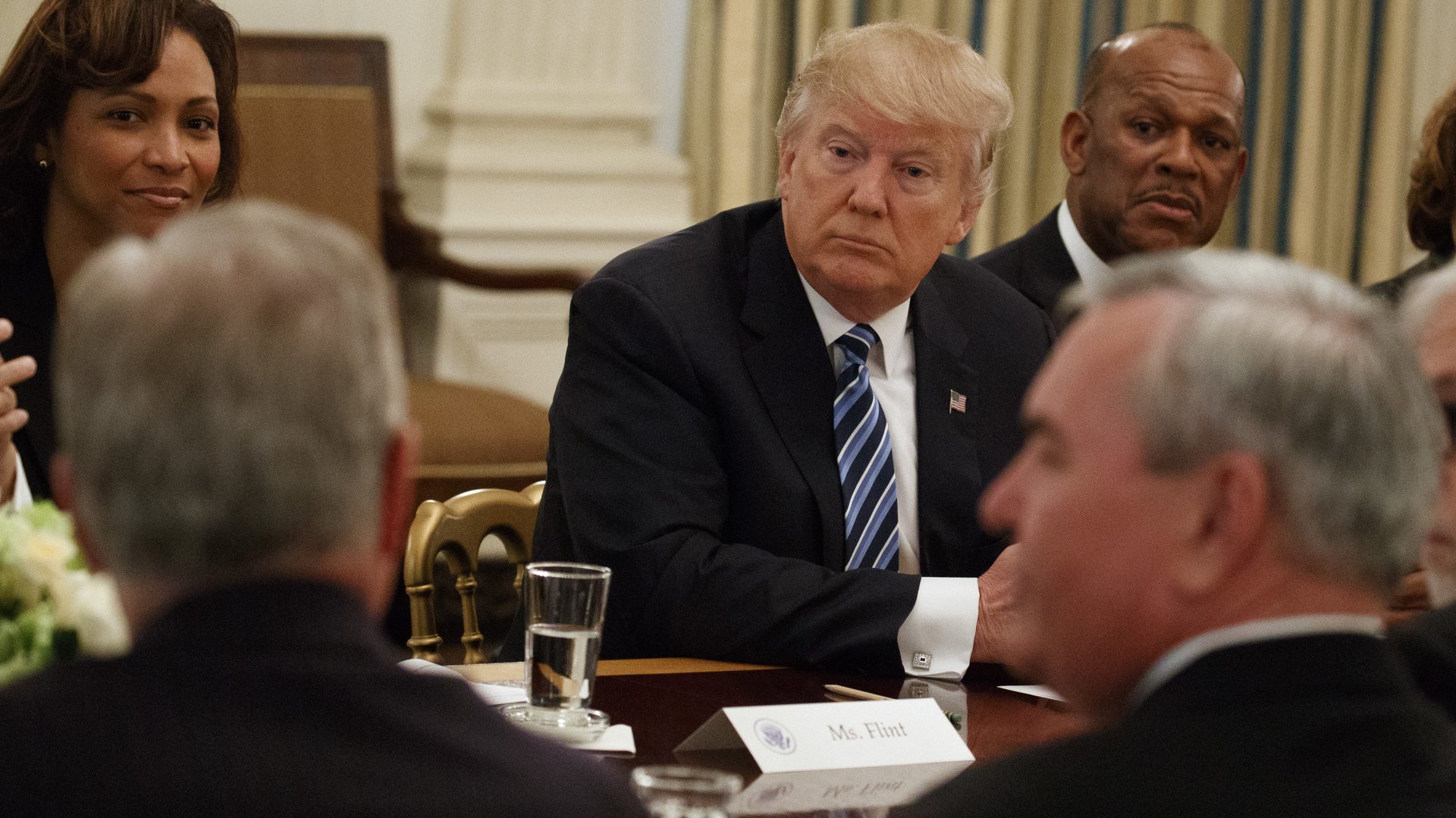In swampy Washington, a lobbyist tells the president “I’m a member of your club”
After spending much of his campaign rallying against the influence of lobbyists and corporate interests in Washington, DC—he said over and over that he would “drain the swamp”—US president Donald Trump hosted executives of the nation’s aviation industry and its top lobbyists at the White House Thursday (Feb. 10).


After spending much of his campaign rallying against the influence of lobbyists and corporate interests in Washington, DC—he said over and over that he would “drain the swamp”—US president Donald Trump hosted executives of the nation’s aviation industry and its top lobbyists at the White House Thursday (Feb. 10).
In a particularly unseemly moment, one lobbyist went beyond the normal name, rank, and affiliation pleasantries while introducing himself. “Kevin Burke, Airports Council International. Nice to see you!” the top representative of US and Canadian airports said. The president then turned to greet the next person in the line, a lobbyist for the airline industry. But Burke continued “I’m a member of your club, by the way.” Trump turned back to Burke and said, “Very good, very good.”
The interaction, which has not been previously reported, was captured on video by C-SPAN. It’s the latest in a line of apparent conflicts between the Trump government and the Trump Organization that have revealed themselves in just the first three weeks of the Trump administration.
“Mr. Burke was a long-time member of the Loews Island Country Club before President Trump purchased it” the Airports Council told Quartz in a statement. The club was renamed Trump National Golf Club, Washington DC after the $13 million purchase in 2009.
The private club now has an initiation fee of $100,000 and annual dues of around $8,000, according to The Washingtonian.
Mar-a-Lago, the Trump-owned private club and resort in Palm Beach, Florida recently doubled its initiation fee from $100,000 to $200,000. CNBC reports that annual dues there are $14,000.
Multiple experts on lobbying who spoke to Quartz agree that there’s nothing illegal about a lobbyist paying dues to a club owned by the president.
“It’s not a quid pro quo, but it’s one step away from a suggestion of an exchange,” says Norman Eisen, a former Obama administration ethics official and current fellow at the Brookings Institution. “It’s part of a larger pattern, that is part of a bigger picture.” Eisen has been highly critical of the Trump administration’s ethics decisions to date, and is part of the legal team alleging the president has violated the Constitution’s Emoluments Clause in a lawsuit.
Recently the administration has been criticized for promoting a clothing line run by the president’s daughter; for suggesting that becoming first lady was a “once in a lifetime business opportunity;” and for using Trump’s publicly-appointed position as president to host the Prime Minister of Japan at one one of his commercial interests, Mar-a-Lago.
The exchange with Burke “really does show the inherent conflict of interest in his official capacities,” says Craig Holman, a lobbyist for Public Citizen, a non-profit consumer rights advocacy group and think tank. But more than just a theoretical conflict, Holman said this was “another clear-cut specific example.”